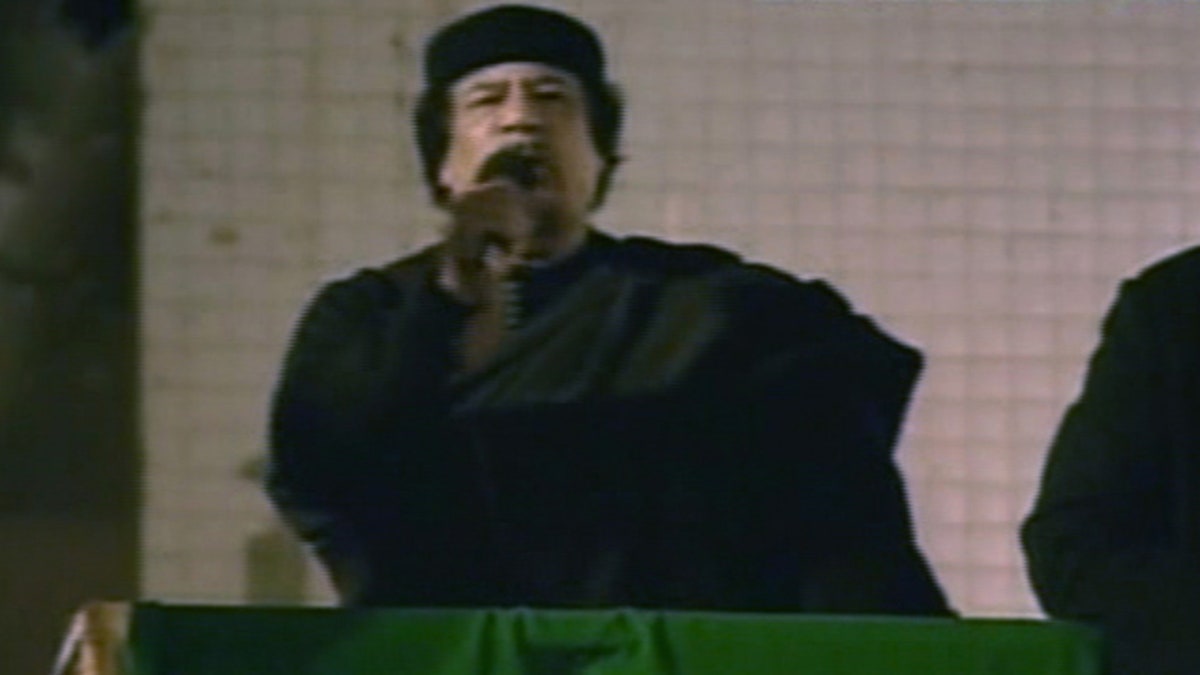
March 22: This image taken from Libyan State TV shows Libyan leader Muammar al-Qaddafi as he talks to a large crowd in Bab El Azizia, Libya. (AP)
TRIPOLI, Libya – The part of Libya under Muammar Qaddafi's control is wracked by shortages in fuel, food and cash despite a veneer of normalcy, according to a U.N. fact-finding mission.
In a statement issued late Monday, the United Nations said its weeklong mission to the country had identified lack of fuel, rising food prices, a strained medical system, and a cash crunch as some of the problems besetting Qaddafi's government.
"Although the mission observed aspects of normalcy in Tripoli, members identified pockets of vulnerability where people need urgent humanitarian assistance," Humanitarian Coordinator Laurence Hart said about the U.N. mission, which concluded Sunday.
A rebellion that erupted against Qaddafi's long time rule in mid-February has descended into a civil war with roughly half the country now outside government hands.
The U.N. has passed sanctions against Qaddafi's regime that make importing fuel and goods difficult, and at least 30 countries have recognized the rebels as the country's legitimate representatives.
The U.N. said the country's medical system is under strain not only because of casualties from the fighting with rebels but the departure of thousands of foreign health workers that kept the system running.
Libya's acute fuel crisis is also a major problem, said the statement, with endless gas lines around petrol stations despite a fuel rationing system.
The U.N. quoted Libyan experts claiming that supplies might run out in two weeks.
Gasoline and other products are currently imported or smuggled through Tunisia and neighboring Algeria. Libya also has working refineries, but not enough capacity to meet daily demand.
The Islamic fasting month of Ramadan is expected to start Monday and will likely add further strain to the country's food supplies.
"There are also concerns over the unsustainable food supply chain for the public distribution systems, especially as Ramadan approaches and the conflict persists," the U.N. said. Following a dawn to dusk fast, families during Ramadan are accustomed to large feasts after sundown.
Banks are also restricting the amount of cash people can withdraw, the U.N. said, after many Libyans withdrew their savings at the start of the crisis.
The battle between the Libyan government and the rebels has descended into a stalemate with little movement on the various fronts across the country, despite a NATO bombing campaign directed against Qaddafi's forces.
